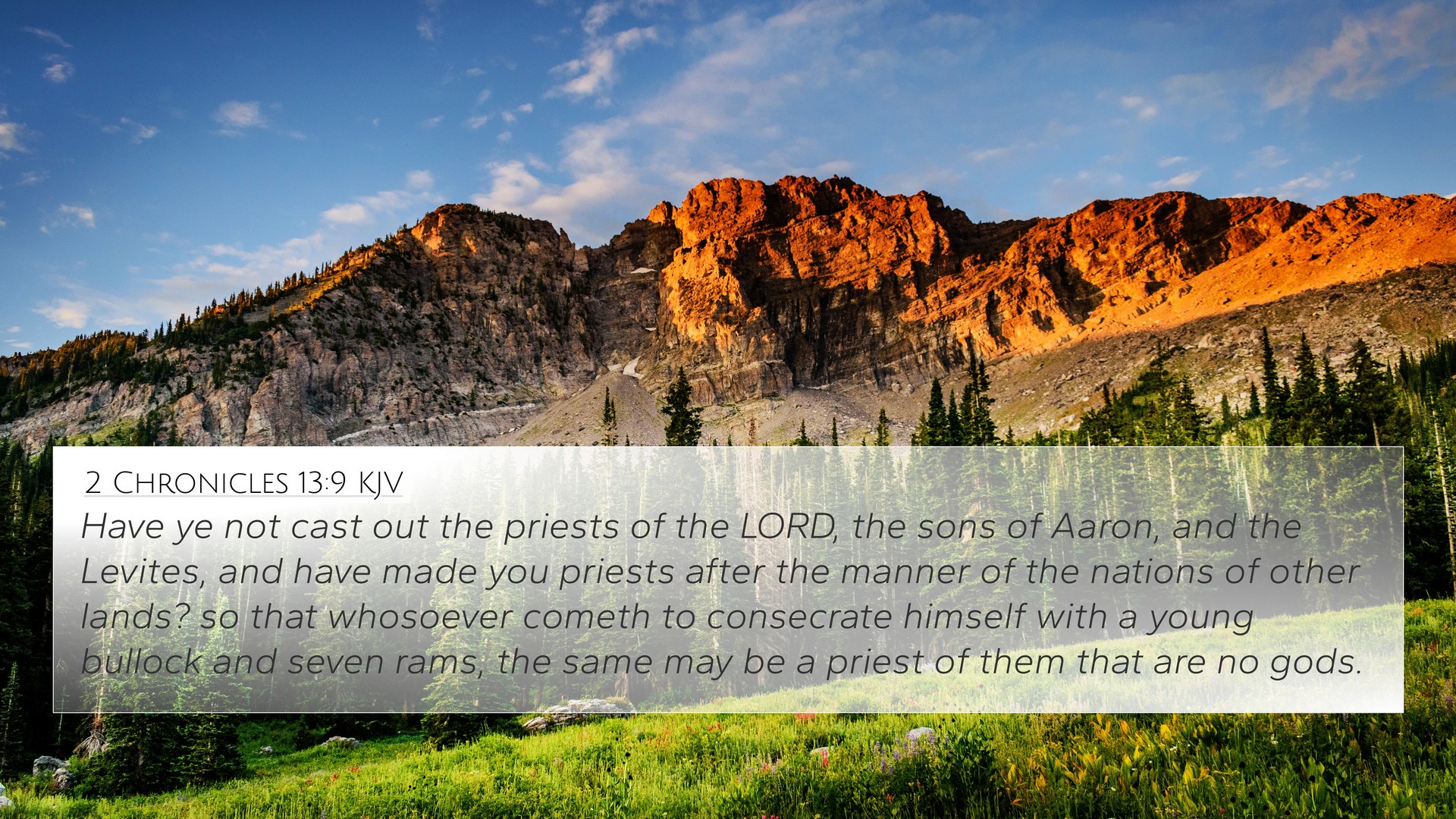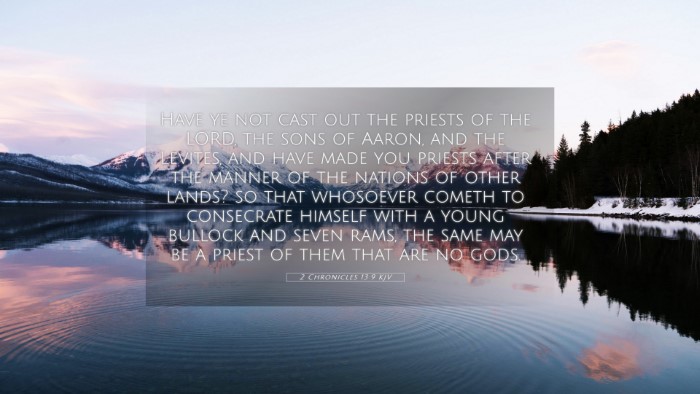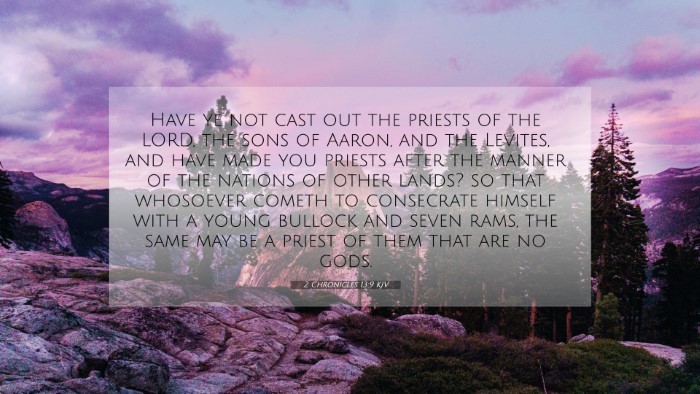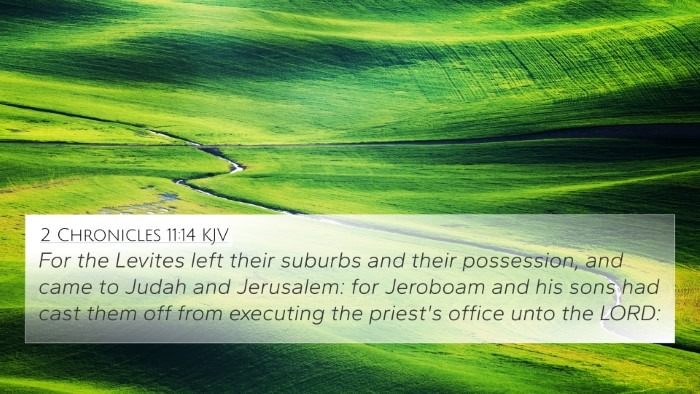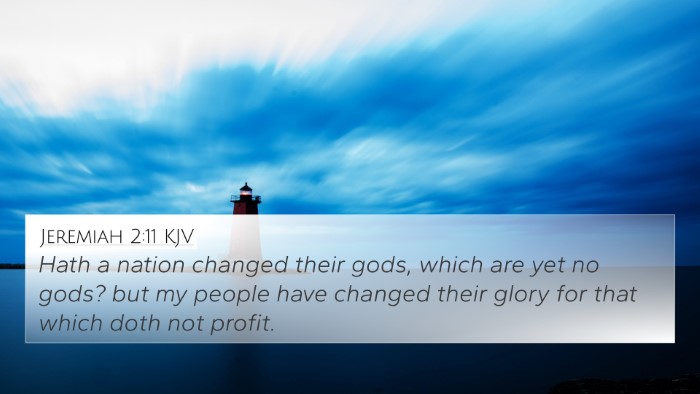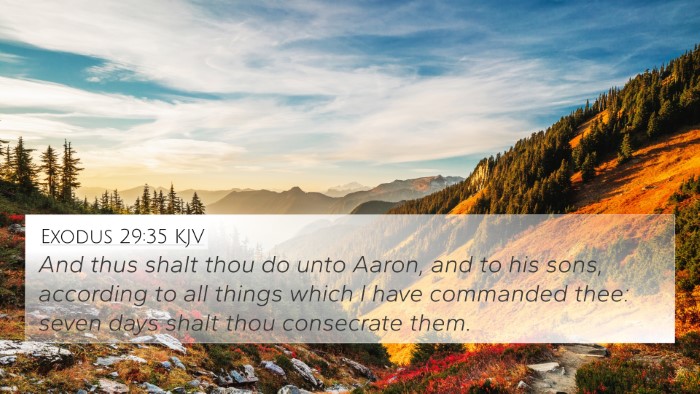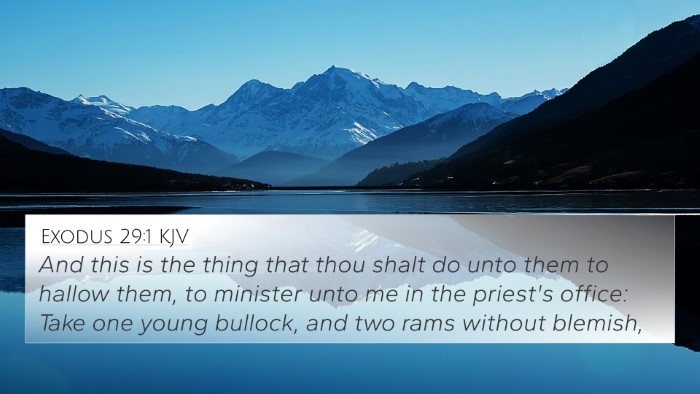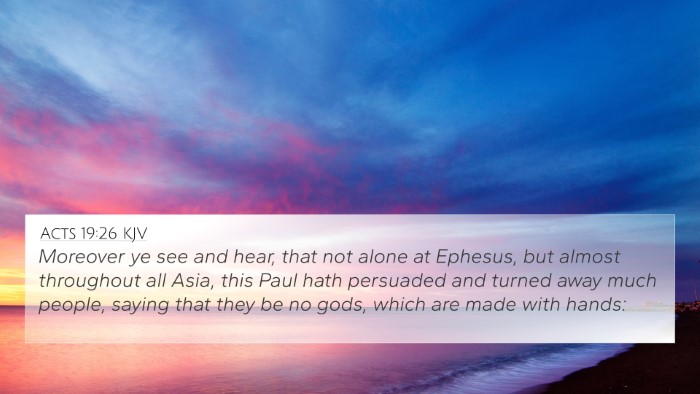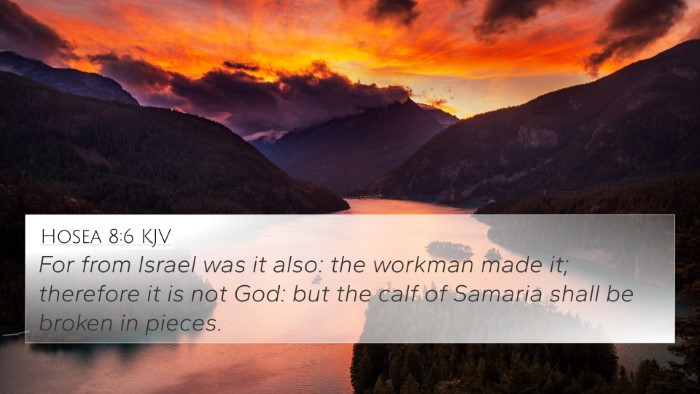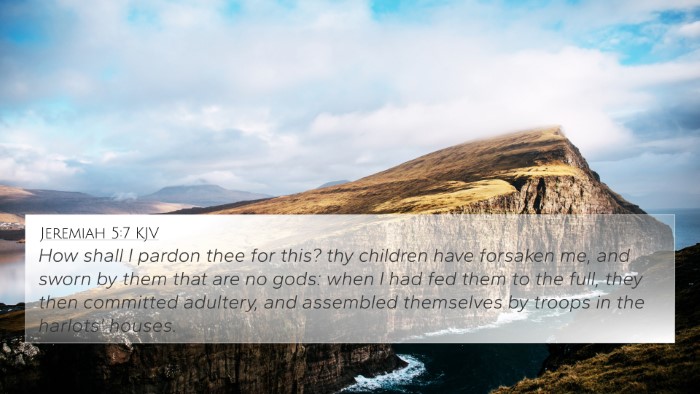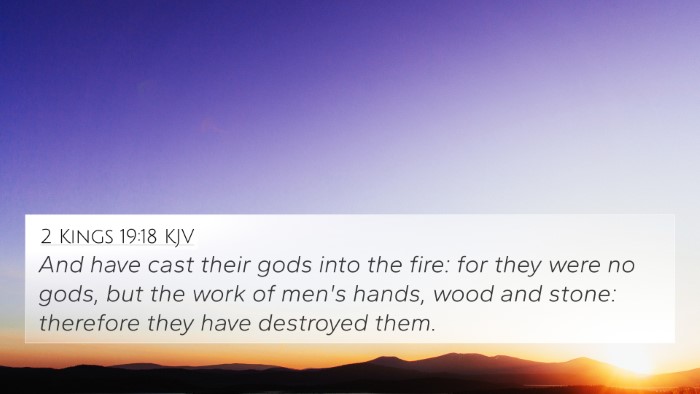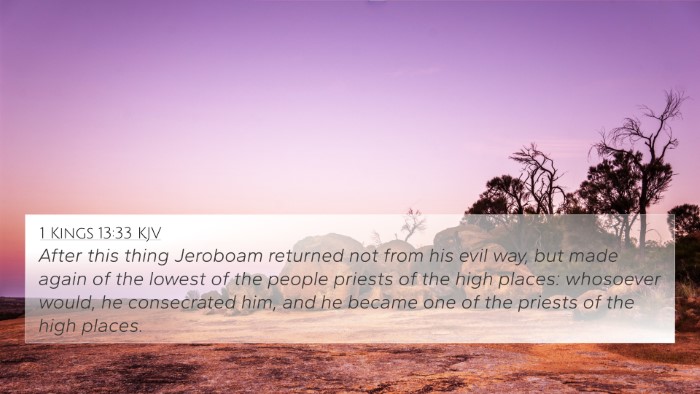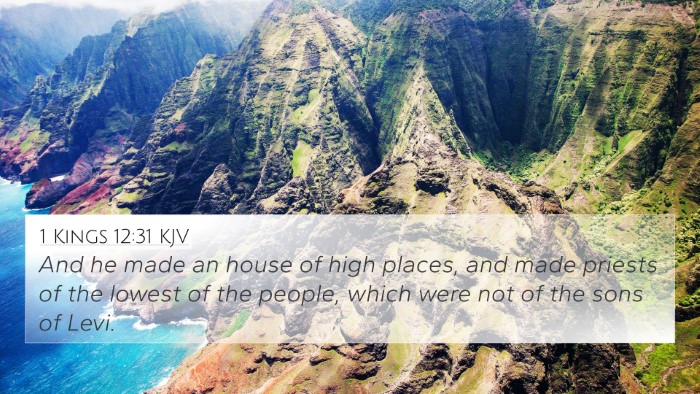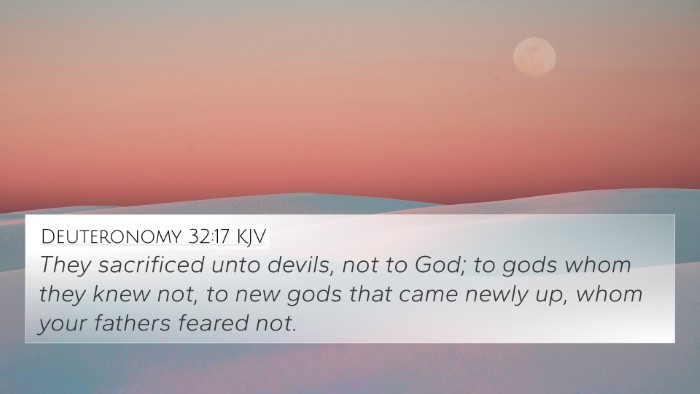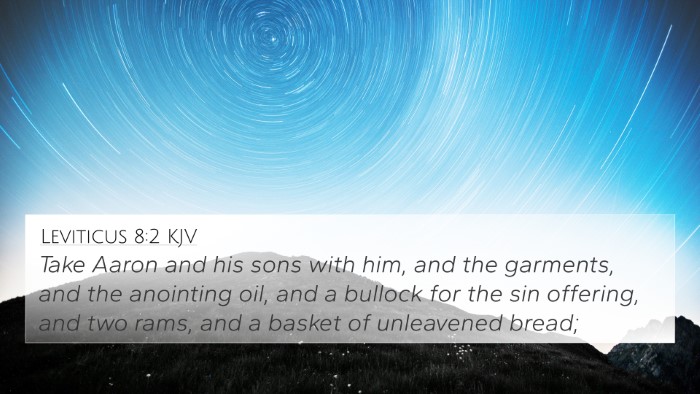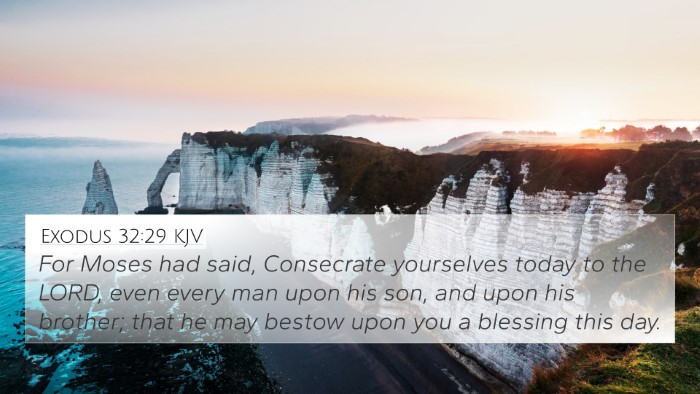Understanding 2 Chronicles 13:9
The verse 2 Chronicles 13:9 states, "But is it you that have driven out the priests of the LORD, the sons of Aaron, and the Levites, and have made you priests after the manner of the nations of other lands? So that whosoever cometh to consecrate himself with a young bullock and seven rams, the same may be a priest of them that are no gods." This passage holds significant meaning within the context of the history of Israel and the worship practices established by God.
This verse reflects on the actions of King Jeroboam of Israel, who established a new priesthood and worship practices that deviated from the divinely ordained system established by God through Aaron and the Levites. The commentary from various scholars helps in understanding the implications of these actions and the broader theme of faithfulness to God's covenant.
Commentary Insights
Matthew Henry's Commentary highlights that Jeroboam's actions led to rebellion against God's order. By appointing priests from among the people rather than from the ordained Levites, he undermined the established church and eroded true worship.
According to Albert Barnes, this passage serves to illustrate the dangers of altering God’s commands. He emphasizes that creating a false priesthood is akin to making a false religion, which can lead the people astray.
Adam Clarke points out the seriousness of Jeroboam's actions as he induced apostasy. Clarke signifies that the legitimacy of the priesthood and the temple worship is paramount, and any deviation is met with divine consequence.
Thematic Connections
The narrative of 2 Chronicles 13:9 connects deeply with the themes of loyalty and obedience to God’s established practices. It invites readers to consider the importance of proper worship and adherence to the commandments given by God.
Bible Cross-References:
- Exodus 28:1 - The appointment of Aaron and his sons as priests.
- 1 Kings 12:31 - Jeroboam’s establishment of a new priesthood.
- 2 Chronicles 11:13-14 - The Levites abandoning Israel for Judah.
- Malachi 2:8-9 - The corrupt priests who have turned aside from God’s ways.
- 1 Timothy 2:5 - The one mediator between God and mankind.
- Hebrews 7:11-12 - The change in the priesthood and law.
- John 4:24 - True worshippers will worship the Father in spirit and truth.
Application for Believers
For contemporary readers, 2 Chronicles 13:9 serves as a potent reminder of the necessity to adhere strictly to God’s guidance in worship and church leadership. The repercussions of rearranging or reinterpreting God’s law are consequences that can lead to spiritual destitution.
The current believer must be cautious of modern-day equivalents of Jeroboam's disobedience—be it through altering doctrines, casual attitudes towards church leadership, or neglecting corporate worship practices.
Furthermore, engaging in Bible verse cross-references can help believers better understand the connections between different scriptures, supporting interpretations and enriching their spiritual journey. For example, studying the relationship between 2 Chronicles 13:9 and related verses deepens awareness of God’s expectations for worship and leadership.
Tools for Bible Cross-Referencing
Numerous resources facilitate bible cross-referencing. Tools like a bible concordance or bible cross-reference guide are accessible for individuals seeking to delve deeper into scriptural connections. These tools can enhance understanding of biblical themes and the integration of both Old and New Testament teachings.
In Conclusion
2 Chronicles 13:9 is more than a historical account; it serves a vital lesson in the importance of upholding God’s commandments, which echo throughout all scripture. By exploring its implications through reliable commentaries and engaging in concurrent studies with related verses, believers can fortify their faith and commitment to serving God according to His established order.
